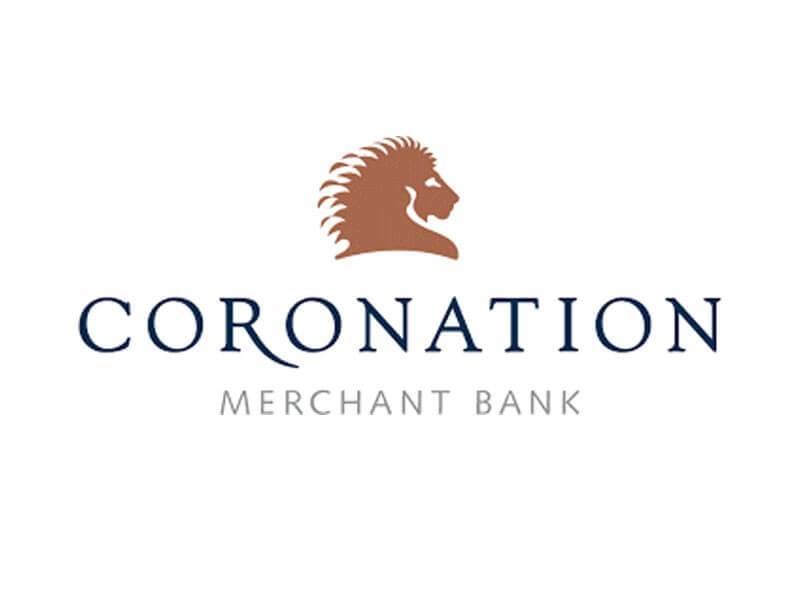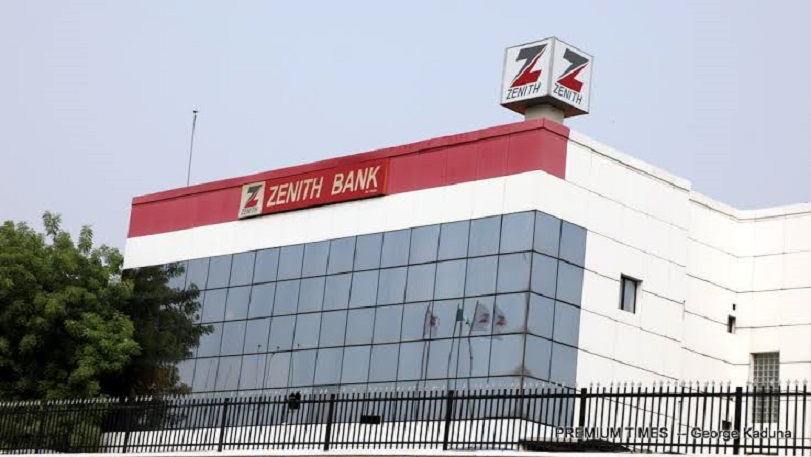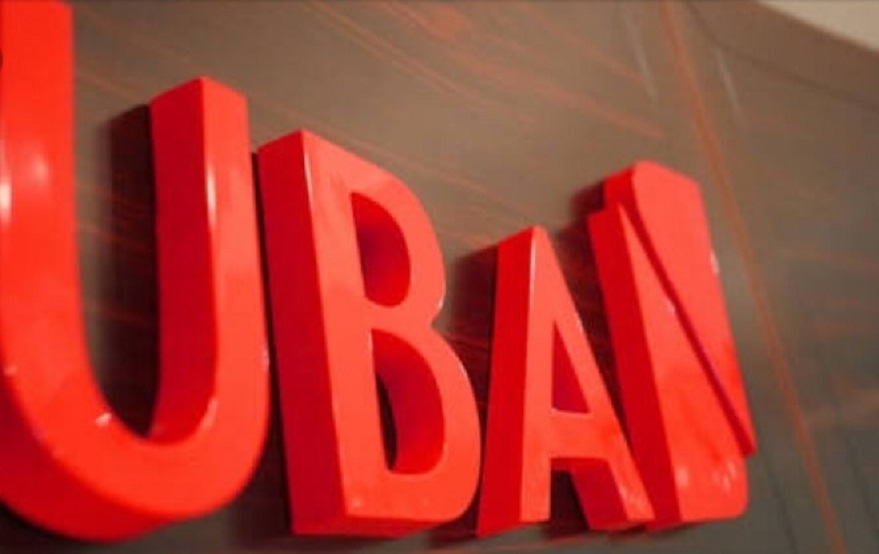Banking
Fitch Affirms Zenith Bank at ‘B+’, Outlook Negative

By Modupe Gbadeyanka
Fitch Ratings has affirmed Zenith Bank Plc’s Long-Term Issuer Default Rating (IDR) at ‘B+’ with the Outlook Negative. Also, the lender’s Viability Rating (VR) was affirmed at ‘b+’ and its Support Rating at ‘5’.
Fitch said Zenith Bank’s IDRs are driven by its standalone creditworthiness, defined by the VR. The VR is constrained by Nigeria’s sovereign rating and the Negative Outlook on the Long-Term IDR mirrors the Outlook on Nigeria’s sovereign rating (B+/Negative).
Zenith’s VR is the highest assigned by Fitch to a Nigerian bank. This reflects the bank’s established franchise in Nigeria where it controls an overall markets share of around 16%. The franchise is particularly strong in the corporate segment. Loss-absorption capacity is strong relative to peers and management has demonstrated its ability to deliver a good performance through volatile operating cycles.
Fitch views Zenith’s management team positively. Decision-making is well spread across a broad number of executives to minimise reliance on individuals. Achieving targets in a volatile operating environment can be difficult but Zenith’s execution is strong relative to peers. The bank’s strategy is primarily to continue to service leading corporate clients.
The loan book represents around 45% of assets, which is lower than international banks, but in line with the average for large Nigerian banks. Zenith’s underwriting standards and risk controls compare favourably with the average for rated peers. Reported impaired loans are low as a percentage of gross loans (around 4%) and reserve coverage is above 100%. Lending to the oil and gas sector represents around 30% of total loans, average for the sector, and the top 20 loans represent around one-quarter of total loans, which is lower than average comparative figures reported by large Nigerian banks (around 40%).
The bank’s performance metrics compare favourably with peers. Margins are narrower, reflecting the corporate focus, but loan impairment charges also tend to be lower, as could be expected given the more resilient nature of the bank’s clients. Cost control has been reasonable considering high inflation in Nigeria. In 2018, we expect profitability to decline for many Nigerian banks, reflecting weak loan growth, lower Treasury Bill issuance and falling yields on these government securities. IFRS-9 will also result in a rise in loan impairment charges, although this is likely to be containable at Zenith.
Zenith’s capital adequacy ratios are among the strongest in Nigeria and leverage ratios are stable. The bank’s relative capital strengths are a positive ratings differentiator.
Like most Nigerian banks, deposits provide the bulk of funding (72% of total non-equity funding at end-September 2017). Deposits from corporate customers represented 57% of consolidated deposits at end-September 2017, but these tend to be stable.
Zenith issued a five-year USD500 million senior bond in the international capital markets in June 2017. Zenith’s ability to access international market funding, even in times of stress for Nigeria’s economy, is credit positive in our view, providing the bank with funding diversification and access to longer-term finance.
Zenith’s foreign currency (FC) liquidity position shows no apparent signs of stress over a 12-month horizon. The bank holds a sizeable FC liquid asset buffer and its ability to continue to honour FC obligations even during recent periods of extreme FC stress in the Nigerian banking sector demonstrates Zenith’s close attention to the management of its FC liquidity position.
The Long-Term National Rating has been affirmed at ‘AA-(nga)’. National Ratings reflect Zenith’s creditworthiness relative to the country’s best credit and to peers operating in Nigeria.
SENIOR DEBT
Senior debt issued by Zenith is rated at the same level as the bank’s IDRs because in our view, the likelihood of default on these notes reflects the likelihood of default of the bank. The Recovery Rating (RR) assigned to these notes is ‘RR4’ indicating average recovery prospects.
SUPPORT RATING AND SUPPORT RATING FLOOR
Fitch believes that sovereign support to Nigerian banks cannot be relied on given Nigeria’s weak ability to provide support, particularly in FC. In addition, there are no clear messages from the authorities regarding their willingness to support the banking system. Therefore, the Support Rating Floor of all Nigerian banks is ‘No Floor’ and all Support Ratings are ‘5’. This reflects our view that senior creditors cannot rely on receiving full and timely extraordinary support from the Nigerian sovereign if any of the banks become non-viable.
RATING SENSITIVITIES
IDRS, NATIONAL RATINGS AND VR
The bank’s IDRs, National Ratings and VR are sensitive to changes in Nigeria’s operating environment and to factors impacting Zenith’s intrinsic creditworthiness. The operating environment is unlikely to improve until the outlook for the sovereign rating improves. Zenith’s ratings are sensitive to a significant deterioration in asset quality and a resultant weakening of loss absorption capacity. This is not our base case. Upside potential for the ratings is limited given the operating environment.
SUPPORT RATING AND SUPPORT RATING FLOOR
The SR is potentially sensitive to any change in assumptions around the propensity or ability of the sovereign to provide timely support to the bank.
SENIOR DEBT
Ratings on the senior debt will change in line with the bank’s IDRs.
The rating actions are as follows:
Long-Term IDR affirmed at ‘B+’; Outlook Negative
Short-Term IDR affirmed at ‘B’
Viability Rating affirmed at ‘b+’
National Long-Term Rating: affirmed at ‘AA-(nga)’
National Short-Term Rating affirmed at ‘F1+(nga)’
Support Rating affirmed at ‘5’
Support Rating Floor affirmed at ‘NF’
Long-term senior unsecured debt issues affirmed at ‘B+’/’RR4’
Short-term senior unsecured debt affirmed at ‘B’
Banking
Cardtonic vs Cleva Virtual Card: What Nigerians Should Know Before Choosing

The growing digital economy and the Naira card payment restriction have accelerated the rise of virtual card payments. From a single virtual card operator in 2015, Nigerians now have as many options. They can literally get a virtual card in Nigeria today from several platforms.
But among the most popular are highly reliable options like Cardtonic and Cleva. Both virtual cards deliver an excellent experience for shoppers and freelancers in Nigeria alike. They are accepted across global stores and online payment platforms.
Cardtonic is best for making subscription payments, like paying for YouTube Premium. While Cleva is for receiving foreign payments internationally. It is also one of the best ways to send money to Nigeria.
So between Cardtonic and Cleva, which virtual card would you choose? This article explains everything you need to know before choosing a particular option. Let’s get into it
Cardtonic Vs Cleva Virtual Card: Head-to-Head
Let’s compare Cardtonic and Cleva based on value proposition, card creation and other fees, funding options, global acceptance, rating and social sentiment, and extra perks.
| S/No | Factor | Cardtonic | Cleva |
| 1. | Value Proposition | Affordable. High Reliability. Flexible funding. | Receive payment from abroad. |
| 2. | Card Creation and Other Fees | $1.5 Card Creation Fee. 2% Funding Fee | $3 Card Creation Fee. 1% Funding Fee |
| 3. | Funding Options | Bank Transfer; Gift Cards | Bank Transfer; Foreign Payment |
| 4. | Global Acceptance | Wider acceptance at global locations | Wide Acceptance |
| 5. | Rating and Social Sentiment | 43.6% Positive Sentiment. | 36.7% Positive Sentiment
|
| 6. | Extra Perks | Multi-purpose app | Sleek User Interface. Speedy Customer Support. |
1. Overview and Value Proposition
Cardtonic:
Nigeria’s premium gift card brand, Cardtonic, offers virtual cards so users can navigate international payment restrictions without stress. It’s the most flexible option around, letting you fund your wallet in Naira via bank transfer or gift cards.
Furthermore, Cardtonic’s conversion fees are also very competitive, whether you are converting from Naira to USD or vice versa. You are guaranteed to get the best value for your funds.
One thing that truly stands out is that Cardtonic isn’t a one-off provider; it’s a full-scale fintech solution. Within a single app, you can access virtual dollar cards and pay utility bills, trade gift cards, shop for gadgets, and even buy eSIMs.
But how do you set up a Cardtonic virtual card? Getting started is quite straightforward. You need to download the Cardtonic app, complete KYC, and then create a virtual card in-app and fund it.
Then head to your payment page, key in your card details, just as you would use a physical card, and boom! Your payment goes through instantly.
Cleva:
Cleva is a standard solution that lets you make and receive international payments in USD. You open a Cleva USD account, and you get a virtual card linked to your account. Well, it isn’t automatic; you need to create the card and pay the card creation fee.
Cleva is particularly well-suited for freelancers and offers an alternative to major payment platforms like PayPal. You can use Cleva to receive payment from major freelance sites like Fiverr and Upwork
Unlike Cardtonic, Cleva allows you to receive and make payments. It’s not either/or; it’s both.
Once the payment arrives in your USD account, you can convert and pay out in Naira. Otherwise, you can use them to fund your virtual cards so you can shop online and pay for digital subscriptions.
2. Card Creation and Other Fees
Cardtonic charges a low card creation fee of $1.5 for a regular card and $5 for the platinum version. Unlike the regular cards, the platinum cards offer extra flexibility. You can add them to your digital wallet, like Apple/Google Pay, to make quick payments from your device without ever needing a physical card.
Additionally, Cardtonic has no monthly or maintenance fees, so you’re never charged if your card goes unused. What’s more? Cardtonic’s funding fees are capped at 2% of the Naira value. And when you indeed make a transaction, you get charged just a fraction as transaction fees.
Lastly, the Cardtonic app is one of the few platforms where you can get the best exchange rates when converting between USD and Naira. The rates often match the prevailing market price.
On the flip side, Cleva offers a low-fee structure. For example, you get charged just $1 for up to $100; that is 1% funding fees, cheaper than most payment providers. Its card creation fee isn’t over the roof either. You get charged only $3, with $1 credited to your card balance and available for use.
But similar to Cardtonic, there are no card maintenance fees whatsoever. Cleva does not charge rent; you are free to use your card at any time and you only get charged when you do so.
3. Funding Options
Cardtonic offers the most seamless card funding options: You can fund your digital wallet in Naira via bank transfer or even gift cards. Once your wallet is funded, you can convert Naira to USD and top up your virtual dollar card. You can then pay or shop at your favorite global platforms like Amazon and Macy’s.
When it comes to Cleva, it’s a little different. You can fund your Cleva virtual card via a bank transfer from within or outside Nigeria. You always have decent options, like US wire, ACH, or even stablecoins, available for you to receive payment from abroad.
Stablecoin payments are available for remote workers whose clients pay in crypto. They are typically settled in less than 5 minutes and provide an effective way to fund your Cleva USD account.
4. Global Acceptance
The Cardtonic virtual card is a popular payment option supported at global merchants, particularly at vendors that accept Visa or Mastercard. That said, you can shop at eBay or Amazon and subscribe to ChatGPT, Google Cloud, and Workspace.
You also get to enjoy contactless payment. Another extra value added. You add your platinum virtual card to Apple or Google Pay and pay simply by tapping your device on supported payment terminals. That’s speed and convenience merged into one.
Other platforms where the Cardtonic virtual cards are accepted include Grammarly, Twitter Blue, Google Ads, YouTube Premium, Canva Pro, and Adobe Creative Cloud.
Comparatively, Cleva is accepted at global locations with the Visa or Mastercard logos. Like Cardtonic, you can shop at your favorite global e-commerce stores like Amazon or eBay. Additionally, you can use your Cleva virtual card to subscribe to Netflix or run Facebook or Google ads.
5. Rating and Social Sentiments
While both products are strong options for paying internationally, ratings on Google Play showed that Cardtonic has a 4.6-star rating out of 20k reviews. Cleva, on the other hand, has received 4.7 out of 5k reviews. However, you should keep in mind that Cardtonic has way more product offerings than Cleva.
Secondly, the Virtual Card in Nigeria Report indicates that Cardtonic is hugely more popular than its counterpart. It has a stronger total number of X mentions than Cleva: 278 total tweets, ahead of Cleva’s 49.
Social sentiment also favors Cardtonic over the Cleva virtual card. Cardtonic led with a positive score of 43.6%, ahead of Cleva’s 36.7%. Overall, Cardtonic is praised for its reliability in supporting Apple and Namecheap payments, while Cleva is recognized for its sleek user interface and speedy support.
Frequently Asked Questions About Cleva and Cardtonic Virtual Card
- Which Virtual Card is Best in Nigeria?
The best virtual card in Nigeria currently is Cardtonic due to its high reliability. Since its launch in 2024, it has continually enabled Nigerians to pay across popular global destinations without stress.
Besides, the Cardtonic virtual card is cost-effective and provides the strongest security and the most flexible funding options.
- Cardtonic vs. Cleva: Which is Cheaper?
Overall, Cardtonic is cheaper: In terms of card creation fees, Cardtonic charges $1.5 compared to Cleva’s $3. And as regards card funding fees, Cardtonic charges about 1.5% on Naira deposits, with a maximum of 2,000 Naira overall. Alternatively, Cleva charges only 1% for funding in USD.
- Can Funds be Added in Naira?
Yes, Cardtonic lets you fund your digital wallet directly in Naira via bank transfer or gift card sales. Alternatively, Cleva has also launched its Naira funding feature. With this, you can transfer from any local bank app and have your Cleva NGN account credited.
- Cardtonic vs. Cleva: What Should Nigerians Consider Before Choosing?
It is important to consider your use case before choosing between the Cardtonic and Cleva virtual cards. For example, if you want to receive funds from abroad, choose Cleva. If you wish to make a payment or subscribe to popular channels, then you can choose from either Cardtonic or Cleva. However, Cardtonic offers a full fintech package.
Other factors to consider before choosing a virtual card include fees and exchange rates. If you want lower fees or the best conversion rates, the Cardtonic virtual card is your best option.
- Can Cleva Receive Money from Abroad?
Yes, Cleva has a USD account feature that allows users to receive payments via US wire or ACH from global locations. Additionally, Cleva supports stablecoins, so you can also receive USDT and USDC from abroad directly to your USD wallet.
- How Long Does it Take to Receive Payment on Cleva?
It all depends on the payment option. General ACH payment takes 1–3 business days. While wire transfer from the US takes 1 to 2 days. Meanwhile, stablecoins take less than five minutes.
Conclusion
Cardtonic vs. Cleva: Which should you choose? Well, it all depends on your needs and preferences. Choose Cardtonic if you need an all-in-one app for fintech payments and gift card trading.
Then choose Cleva if you’re a remote worker looking for an alternative means to receive payment from abroad. They may not be as popular as their counterparts, but they do work.
Cardtonic clearly outperforms Cleva, as evidenced by its user feedback and statistics. It has way more users, the most flexible funding, and the cheapest fees, and it clearly supports a wider range of platforms than Cleva.
Banking
Coronation Merchant Bank Targets Top-Tier African Status in Next Growth Phase

By Adedapo Adesanya
Coronation Merchant Bank has set its sights on attaining top-tier status among African banks, leveraging a decade of operations and Nigeria’s ongoing economic reforms to drive its next phase of growth across key sectors.
Speaking at the Chairman’s Dinner held to commemorate the bank’s 10th anniversary in Lagos, the chief executive of the lender, Mr Paul Abiagam, said the institution had successfully carved out a distinct niche in Nigeria’s highly competitive financial services market despite a decade defined by economic volatility, policy shifts and macroeconomic uncertainty.
“Over the last 10 years, we have found our own space in a very tight market and built credible footprints in the specific markets we chose to serve,” Mr Abiagam said.
Describing the bank’s journey as “valiant” amid the changing economic landscape, he said the anniversary represents both a moment of gratitude to the bank’s founder, shareholders, board and partners, and a recommitment to scale new heights in the decade ahead.
Mr Abiagam attributed the bank’s resilience and steady growth to strong shareholder and board support, as well as a clear and disciplined corporate strategy.
He noted that Coronation Merchant Bank’s focus on defined target markets had enabled it to expand its footprint across key sectors of the economy while maintaining operational clarity.
Looking ahead, the CEO said ongoing reforms and the Federal Government’s ambition to build a $1 trillion economy present significant opportunities for financial institutions with the right expertise and positioning.
He identified infrastructure, construction, real estate, oil and gas, and manufacturing as priority sectors where the bank is already aligning its strategy.
“Volatility often comes with opportunity, What we see clearly is opportunity, and our strategy is to ensure we are well positioned to take advantage of it.” Mr Abiagam said.
Among the bank’s notable milestones, Mr Abiagam highlighted its international credit ratings, placing Coronation among a small group of internationally rated merchant banks in Nigeria.
He also pointed to human capital as a core strength, describing the bank’s people and talent as its greatest asset.
In his remarks, the Chairman of Coronation Merchant Bank, Mr Babatunde Folawiyo, reflected on the challenges of operating in Nigeria’s banking sector over the past decade, noting that the true measure of success lies in an institution’s ability to grow through uncertainty and emerge stronger.
“Anyone who has operated in Nigeria’s banking space over the last 10 years knows how challenging it has been,” Mr Folawiyo said, citing policy changes, macroeconomic shifts and leadership transitions. “The real test is whether you can grow through those challenges—and we have.”
Mr Folawiyo said recent reforms have introduced greater certainty into the economy, particularly in the foreign exchange market, which is critical for business planning and sustainable growth. While acknowledging that the adjustment period has been difficult, he stressed that predictability, even at higher exchange rates, is far more beneficial than extreme volatility.
“No business thrives without some level of stability. What hurts the economy most is wild and sudden swings. Predictability allows businesses to plan, adjust and grow,” he said.
On the outlook for the sector, Mr Folawiyo said Nigeria remains significantly underbanked, creating room for diverse players within the financial system. While technology and fintechs are expanding access to financial services, he emphasized the enduring role of specialized institutions such as merchant banks in serving corporate and structured finance needs.
“A corporate client structuring commercial papers or complex funding solutions needs more than a fintech app. It needs a bespoke, one-stop financial partner. That is where merchant banks like ours play a critical role,” the Chairman said.
He added that Coronation Merchant Bank’s strategy is anchored on long-term economic fundamentals rather than political cycles, noting that the current policy direction of the Central Bank and the Federal Government, though initially painful, aligns with sound economic principles.
“These are textbook reforms. There is no gain without pain, and we are already beginning to see the gains, not just in the financial sector but across the broader economy,” he added.
Banking
S&P Forecasts 25% Credit Growth for Nigerian Banks in 2026

By Adedapo Adesanya
Nigerian banks are expected to post stronger credit growth of up to 25 per cent in 2026 while retaining positive profitability, according to a new outlook by S&P Global Ratings.
In its Nigerian Banking Outlook 2026, S&P said improved lending to key sectors of the economy alongside resilient non-interest income would help banks absorb the impact of regulatory headwinds and easing interest rates.
The ratings agency projected credit growth of between 20 and 25 per cent in 2026, driven largely by increased investments in oil and gas, agriculture and manufacturing.
It added that the outlook for lending was supported by expectations of moderating inflation and gradual monetary easing, following recent interest rate cuts by the Central Bank of Nigeria (CBN).
“We expect credit growth of about 20-25 per cent supported by investments in the oil and gas, agriculture, and manufacturing sectors. Although interest rates have started to decrease, profitability should stay resilient in 2026, supported by growth in non-interest income (NII) and lower provisions.
“We expect Nigerian banks to prove resilient and capable of preserving their profitability in 2026,” S&P said, noting that earnings would be supported by transaction driven fees, commissions and a still elevated cost of risk, even as margins come under pressure.
The ratings agency noted further that it expects nominal lending growth to remain high at about 25 per cent, supported largely by investments in the oil and gas sector, agriculture and manufacturing.
S&P said Nigerian banks would continue to benefit from rates that remain high relative to peers, supporting net interest margins while interest rates are expected to decline further in 2026.
“Although interest rates have started to decline, we expect rates to remain high relative to peers, which will continue to support banks’ net interest margins through 2026.
“We forecast the average return on equity (ROE) will normalise at 20-23 per cent in 2026 compared to 25 per cent estimated for 2025, while return on assets will decline marginally to 3.0-3.1 per cent from an estimated 3.3 per cent in 2025. Profitability will be supported by still high interest margins, growing NII, and slightly lower provisions, while capital issuance will increase the equity base leading to a lower ROE.
“Although interest rates have started to decline, we expect rates to be high relative to peers, which will continue to support the banks’ net interest margins through 2026. We forecast an average margin drop of about 50bps to 100bps in 2026, as banks’ margins will continue to benefit from higher yields on government securities and large recourse to low-cost customer deposits.”
-

 Feature/OPED6 years ago
Feature/OPED6 years agoDavos was Different this year
-
Travel/Tourism9 years ago
Lagos Seals Western Lodge Hotel In Ikorodu
-

 Showbiz3 years ago
Showbiz3 years agoEstranged Lover Releases Videos of Empress Njamah Bathing
-

 Banking8 years ago
Banking8 years agoSort Codes of GTBank Branches in Nigeria
-

 Economy3 years ago
Economy3 years agoSubsidy Removal: CNG at N130 Per Litre Cheaper Than Petrol—IPMAN
-

 Banking3 years ago
Banking3 years agoSort Codes of UBA Branches in Nigeria
-

 Banking3 years ago
Banking3 years agoFirst Bank Announces Planned Downtime
-

 Sports3 years ago
Sports3 years agoHighest Paid Nigerian Footballer – How Much Do Nigerian Footballers Earn




















